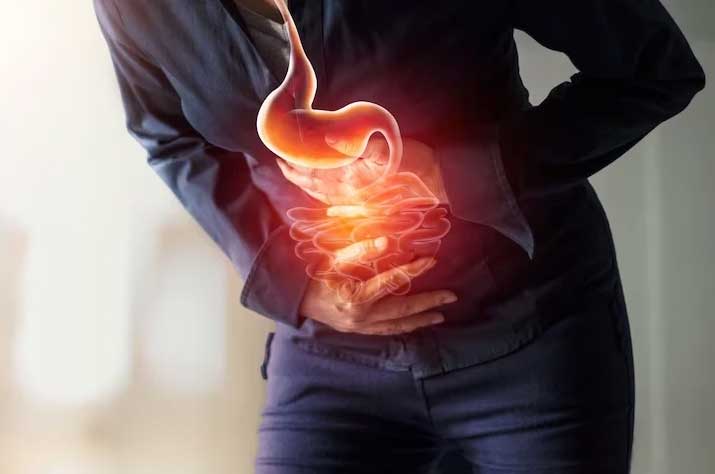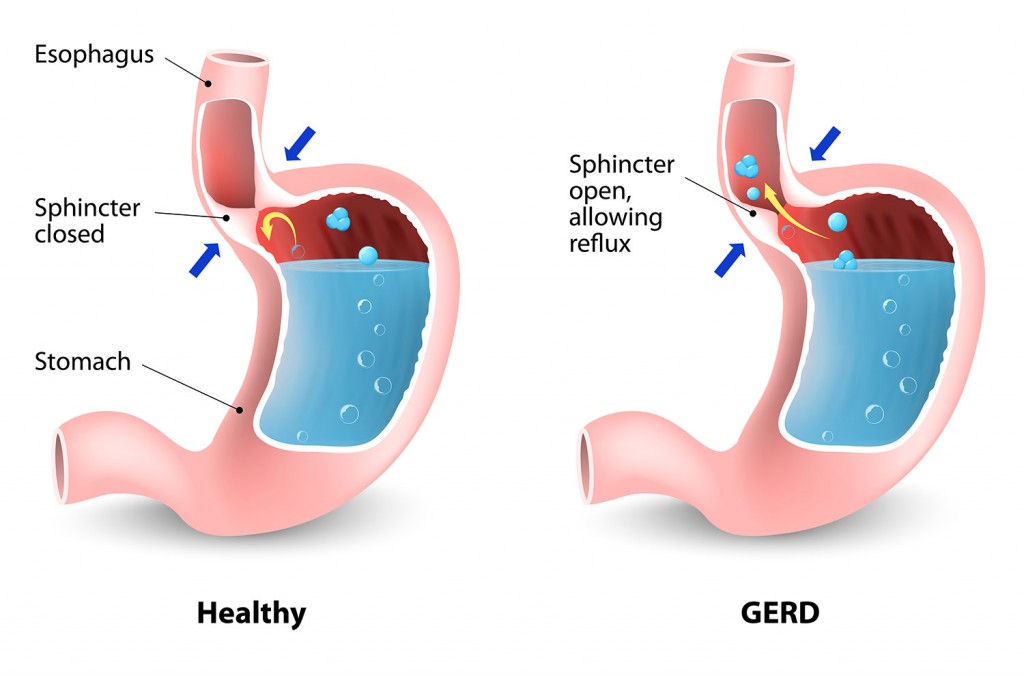Acid reflux occurs when gastric acid comes out of your stomach and goes up into the esophagus, which is the tube that carries everything you consume from your throat to your stomach. Heartburn refers to the burning pain you feel in your chest when you have acid reflux.
A hiatal hernia can cause acid reflux, but it’s most often the result of a weak lower esophageal sphincter (LES). The LES is a round muscle that opens to let food go into your stomach and closes to keep all of the contents inside the stomach. When the LES weakens, your stomach contents regurgitate into the esophagus. If you have frequent and ongoing bouts of reflux and heartburn, you have gastroesophageal reflux disease

Heartburn is the most common symptom of acid reflux. You may also experience:
It’s important to seek treatment for persistent acid reflux. The stomach acid gradually damages your
esophagus and may cause precancerous changes in the esophageal lining.
Your evaluation may include:
During an endoscopy, your provider can biopsy abnormal tissues found in your esophagus.

The first line of treatment includes over-the-counter or prescription medications such as antacids and proton pump inhibitors. Antacids neutralize stomach acid, while PPIs improve heartburn by reducing the amount of acid produced by your stomach. If your acid reflux doesn’t improve with medication, the next step is surgery to repair the problem.
Dr. Monraz often performs a procedure called Nissen fundoplication anti-reflux surgery. During this procedure, he creates a new valve at the top of your stomach by wrapping part of the stomach around itself. The new valve allows food to get through while stopping stomach acid from going up into the esophagus. Dr. Monraz does your Nissen fundoplication using minimally invasive techniques. After the surgery you follow a soft-food diet for 2-4 weeks to allow the tissues to heal. Once your recovery is complete, you can eat a normal diet, and you no longer need to worry about acid reflux or heartburn.
Monraz Surgery 2024 © All Rights Reserved.